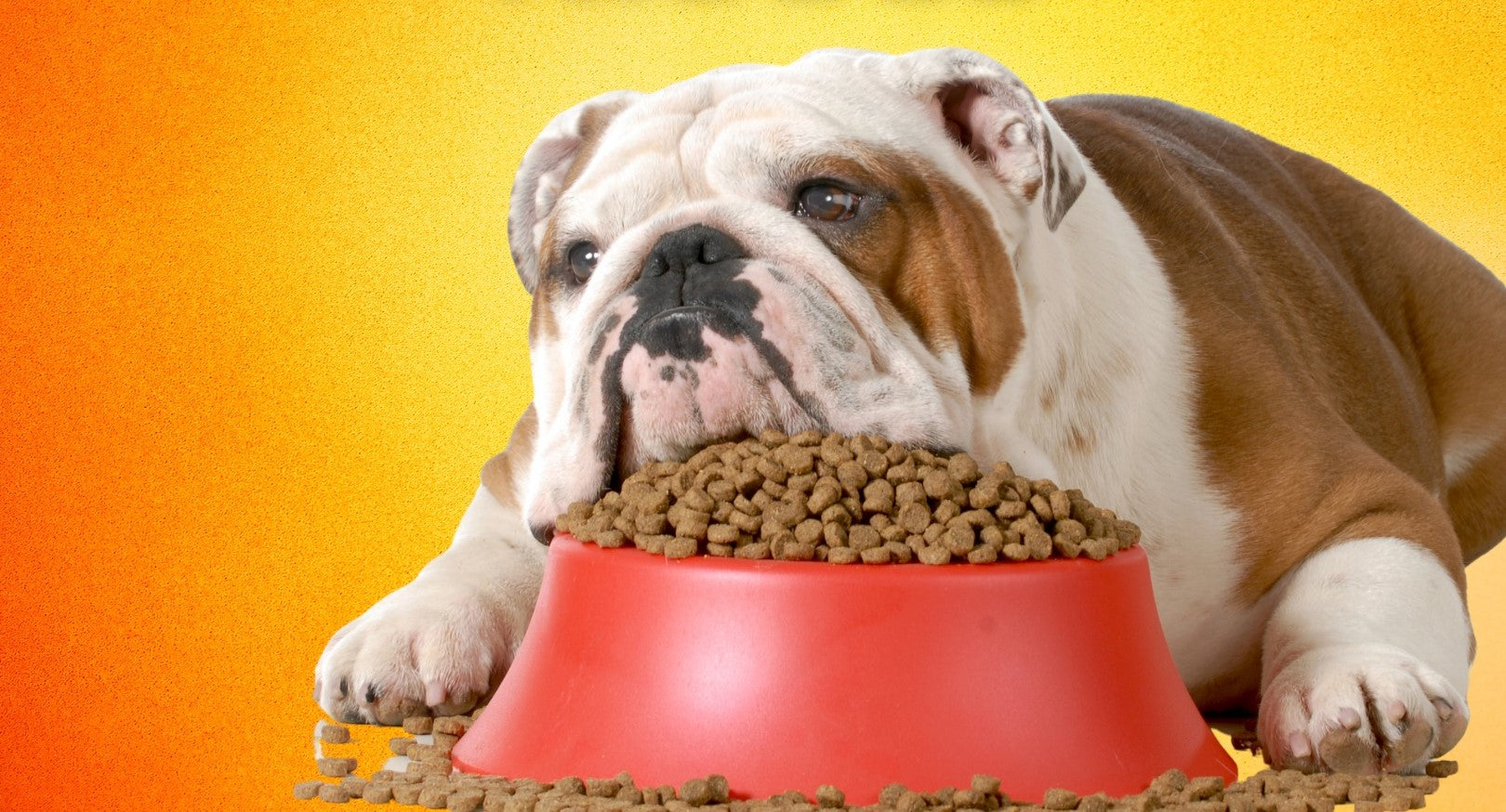Exploring the link between kibble, obesity, and diabetes in dogs
While the prevalence of kibble in our dogs’ diets shows how modern convenience often overshadows long-term well-being, this trend might echo our evolutionary past.
This month has been filled with quotes and wisdom that have found their way to me. The first inspiring quote I came across was:
“We can choose to be wise or wounded.”
I then wrote about learning to fly even when others have stolen our wings of hope and courage. However, even when we might choose wisdom over being wounded and we learn to fly without wings, there is yet another trap…
Our dogs and we tend to choose short-term pleasure over long-term health. But before you start blaming yourself for failing to resist a dessert, snack, or processed food, read on to discover why it’s not your fault, nor is it your dog’s.
How does evolution impact our eating habits?
Let me explain. In the past, eating as much food as possible increased our chances of survival when food was scarce.
However, now that food scarcity is much less common, we are still programmed to eat as much as we can, and obesity has become one of the most serious modern-day problems.
Is comfort-seeking also based on evolution?
In the past, conserving energy increased our ancestors’ chances of survival up to a point. But, similar to overeating, comfort-seeking and convenience are no longer beneficial in today’s world. In fact, they have contributed to the rising rates of obesity in people and dogs.
Now that you have a better understanding of why most of us have such a hard time choosing long-term health over short-term pleasure, it will be easier to be kinder to yourself and also find solutions that work.
How do kibble diets contribute to obesity?
One of the greatest challenges in veterinary health care is dealing with health issues that are caused by feeding processed dog food, such as obesity and diabetes.
Unfortunately, dog kibble typically contains around 300-500 calories per cup (about 8 ounces or 240 grams), whereas raw food, such as meat and veggies, contains around 30-100 calories per cup.
Your dog’s food satiety is controlled by the fullness receptors in the stomach, and an average kibble-fed dog can eat about 10-15 times more calories per meal when compared to real food.
In other words, when a kibble-fed dog gets just the right amount of calories, they still feel very hungry. And who can resist their pleading puppy-dog eyes?!
This is how dog obesity happens. If you are wondering whether your dog has the optimal weight, refer to the body condition score chart below:
Kibble and diabetes in dogs — are they connected?
To add to the problem, most dog kibble diets have large amounts of carbohydrates, which puts the canine pancreas under increased strain. In carnivores, the pancreas has evolved to mainly digest protein, so a high carbohydrate intake puts it under an unusual amount of stress.
Such overexertion commonly leads to pancreatitis, a serious and sometimes life-threatening disease that is much more common in kibble-fed dogs.
Diabetes is almost exclusively seen in dogs eating kibble, as smouldering pancreas inflammation leads to an autoimmune response and consecutive destruction of the insulin-producing Langerhans cells, which leads to a drop in insulin production and diabetes.
Poor quality, rendered, rancid, highly processed ingredients and chemical preservatives are other reasons to stay away from kibble and why I would never feed it to my dog.
But I also know some people in our community still feed kibble because of convenience, lower cost, and also because their veterinarians recommend it.
Why veterinarians still recommend kibble and processed dog food
It’s unfortunate that most veterinary clinics rely on the sale of pet food, which constitutes a significant portion of their revenue, ranging from 10% to 30% of their total income.
It would be very difficult to find a human doctor who recommends that people consume processed and junk food instead of wholesome food, and I wish this were also true for veterinarians.
Free tools to help you make the switch from kibble to raw food
- Trying to find answers to your dog’s health issues or wondering how you can prevent disease? Use the Healthy Dog Tool to access relevant resources about natural dog health and nutrition, as well as a free personalised supplement plan tailored to your dog’s specific needs.
Let’s choose long-term health over short-term convenience and pleasure!
Source link



